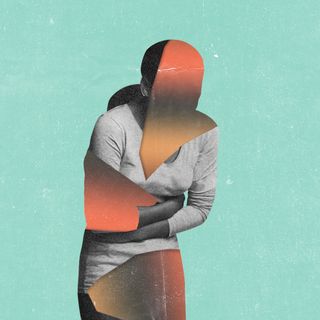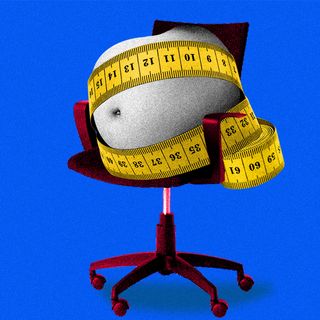A woman, G.B., who had her first orgasm at the age of 33, told The Swaddle in 2019 that “…for a very long time, sex felt like a chore. It was painful, it made my body ache, and nothing about it was pleasurable.” Echoing many cis, straight women, she added, “[W]e kept going at it, with him feeling pleasured each time we had sex, and me not feeling anything but happy that he had come.”
G.B.’s experience is a manifestation of the “orgasm gap” — the disparity in orgasms between cis-gendered men and women in heterosexual relationships. According to a new study published in Sex Roles, this gap may be a self-perpetuating, vicious cycle. Experiencing fewer orgasms accustoms people to expect fewer orgasms — making women, who already got the short end of the “frequency”-stick, to give up trying beyond a point.
“Our expectations are shaped by our experiences, so when women orgasm less, they will desire and expect to orgasm less… If women do lower their expectations in this way, the more orgasm inequality may perpetuate in relationships,” says Grace Wetzel from the department of psychology at Rutgers University in the U.S., who is the first author of the study.
The researchers assessed the responses of more than 100 cis-gendered, sexually active couples — about 94% of whom were heterosexual — and found that men not only orgasmed more often than their female counterparts, but also expected to. Basically, experiencing infrequent orgasms was found to lower people’s expectations of — and even desire for — orgasming.
Related on The Swaddle:
Why Watching Porn May Make Some Women Develop More Body Image Issues Than Others
Unfortunately, this means that within a partnership, the disparity may widen with time, rather than improving, if women who started out with infrequent orgasms simply stop giving weightage to their own sexual pleasure.
Another study, published in January, also investigated the impact of sexual experiences of women on their sexual expectations — especially in the context of the orgasm gap. Analyzing the responses of more than 800 heterosexual participants, the researchers had concluded that women’s sexual desire was lower than their male counterparts only if their first sexual experience wasn’t an “enjoyable” one.
“[R]ewarding sexual experiences shape our sexual expectations… a sexual debut lacking in orgasm may be a common part of women’s sexual socialization where sexual activity may be disincentivized,” Diana Peragine from the department of psychology at University of Toronto Mississauga, who was the first author of that study, explained, adding that women “were half as likely [as men] to report being satisfied at first intercourse, and about eight times less likely to have an orgasm… [It’s a] sexual debut that’s more frustrating than it is rewarding.”
No wonder then that the orgasm gap is an experience so ubiquitous and timeless.
Related on The Swaddle:
Why Mindfulness During Sex Is Linked to Greater Satisfaction, More Orgasms
How does one work towards bridging the gap when they’ve resigned to the idea that bridging it may not be an end within their means? Of course, in a country like India, the lack of sex education, too, fuels the helplessness. “He kept asking me what I liked and what I didn’t, but when I didn’t know what made me feel good, how would I tell him anything?” G.B. had recounted.
We live in a society where women are already slut-shamed for asserting their sexuality. Moreover, indulging in sexual intercourse, especially for women, is perceived more as a means to reproduce than to derive pleasure. The self-perpetuating nature of the orgasm gap serves to make this “social conditioning”-cocktail headier.
Wetzel believes this is a “gender equality issue.” According to her, “The orgasm gap has implications for women’s pleasure, empowerment, sexual satisfaction, and general wellbeing… Women are learning to expect and be satisfied with less in their sexual interactions with men.”
The solution: improve women’s entitlement to pleasure, suggest experts.




